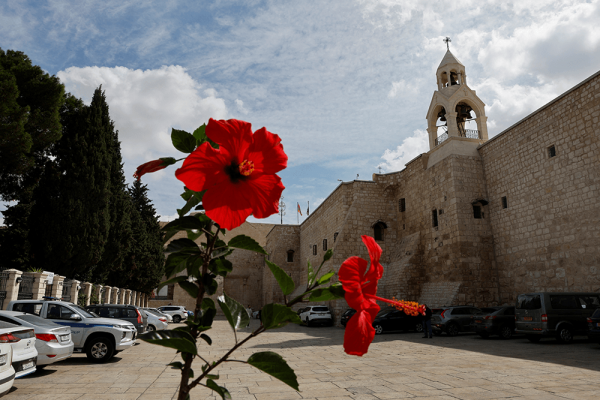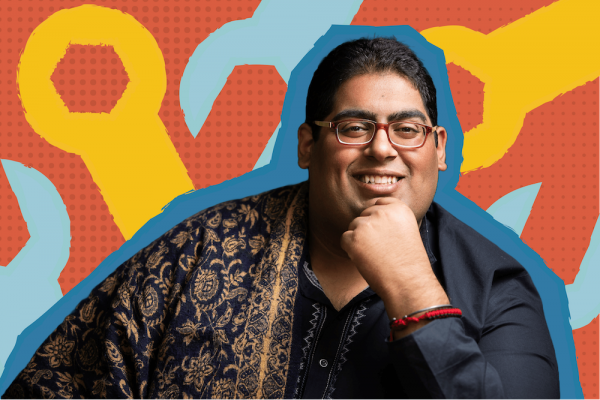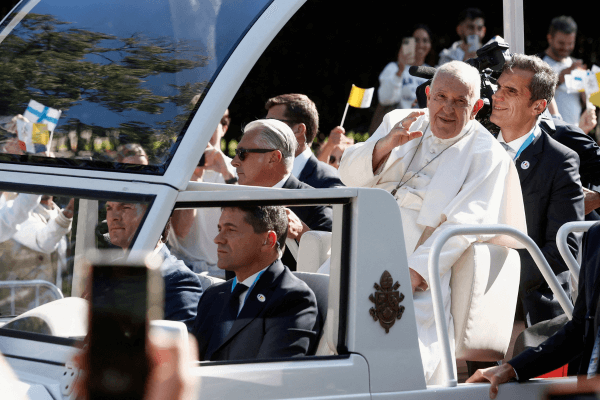At a vigil for peace in Washington, D.C., this Tuesday, Palestinian Lutheran pastor Munther Isaac spoke about the approaching Christmas season in his home of Bethlehem in the West Bank.
“How can we celebrate when we feel this war — this genocide — that is taking place could resume at any moment?” he said.
It is the norm for Western media outlets to silence and ignore the voices of Palestinians. Israel set up a blockade against Gaza beginning in 2007 in response to Hamas’ taking over the territory. By restricting the movement of goods and people in and out of the territory, Israel has created a humanitarian crisis in Gaza. Israel has attempted to justify this blockade and the ensuing humanitarian crisis by characterizing Gazans specifically, and Palestinians in general, as “terrorists” — a characterization of Palestinians that is also prevalent in the United States.
Pope Francis has removed some of the Vatican privileges of conservative American Cardinal Raymond Burke, including a large, subsidized apartment and his salary, a senior Vatican official said on Tuesday.
Hundreds of Catholic institutions around the globe have announced plans to divest their finances of oil, gas, and coal to help fight climate change since Pope Francis published his landmark encyclical on environmental stewardship in 2015 urging a break with fossil fuels.
Honestly, I never thought much about Israel before college. Then, during my sophomore year, a prominent New Testament studies scholar had been invited to speak on campus; after it came to light that they were openly critical of the state of Israel, they were summarily disinvited. A few other students and I were still able to meet with the scholar, and we were shocked by the language they were using to describe the conditions in Israel for the Palestinians: “Second-class citizens,” “genocide,” and “apartheid” were the terms that struck me most.
“It can’t be as bad as what Black people have faced in the United States or what they faced in South Africa,” I remember saying to the scholar. “Go and see,” they admonished. And so, one year later, that’s exactly what I did.
My seminary students are eager to confront the challenge Christian nationalism poses, including its simplistic use and cynical abuse of biblical texts. Christian nationalists wield the Bible as if it were a static authority, perverting its vision of peoplehood to emphasize homogeneity. Yet the biblical writings themselves are characterized by lively exchanges, competing perspectives across multiple generations, and appeals to care for the stranger.
As we officially enter the season of primaries, advertising campaigns, and debates, faith communities are as central to the election process as they ever have been. Even with the nationwide decline in religiosity and trust in institutions, religious leaders and congregations are central community builders for millions of people in the U.S.
Former first lady Rosalynn Carter, who President Jimmy Carter called “an extension of myself” owing to his wife’s prominent role in his administration even as she tirelessly promoted the cause of mental health, died on Sunday at age 96, the Carter Center said.
Food is so much more than just its physical elements. It tells a story about our cultural traditions, familial love, and hope for the future.
The Vatican on Wednesday signed an agreement with German carmaker Volkswagen to replace the city-state’s entire car fleet with electric vehicles by 2030.









